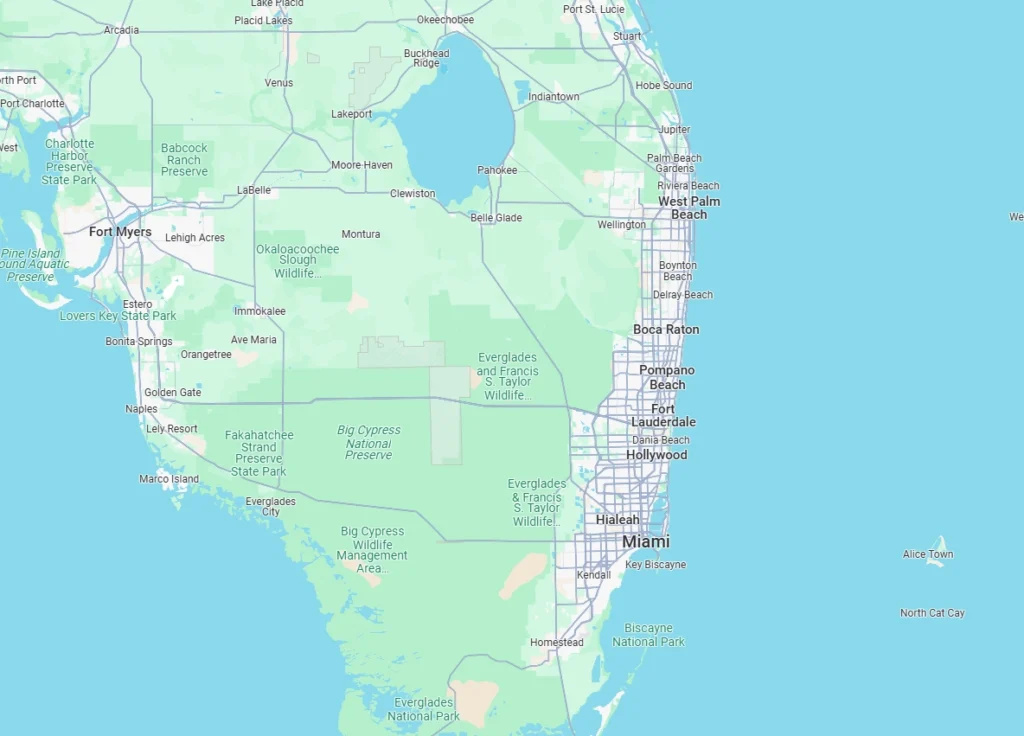Skip the confusion. Get honest answers and personalized solutions from someone who’s been there.
Call Yvonne!
954-646-3666
Let’s find coverage that fits your life and budget. I’ll show you all your options – and potential savings – with no obligation.

Navigating healthcare compliance requirements while maximizing tax advantages requires expert knowledge of complex federal and state regulations. Business health insurance compliance isn’t just about avoiding penalties – it’s about understanding opportunities to reduce tax liability, claim valuable credits, and structure benefits programs that provide maximum value for both your business and employees.
At Heaven Insurance Consultants, we understand that South Florida business owners need guidance that goes beyond just purchasing insurance. That’s why we specialize in helping businesses understand compliance requirements, maximize tax incentives, and structure health benefits programs that achieve regulatory compliance while optimizing financial advantages.
Understanding business health insurance compliance and tax benefits requires expertise in federal regulations, state requirements, and ever-changing tax law provisions that affect employee benefits.
We provide comprehensive education about business health insurance compliance requirements and available tax incentives. Our team stays current with ACA regulations, ERISA requirements, tax law changes, and state-specific provisions to ensure you receive accurate guidance for both compliance and tax optimization.
Understanding compliance requirements requires evaluating your specific business situation, employee count, and benefit structure. We help you navigate complex regulations while identifying opportunities to maximize tax benefits and minimize compliance burdens.
As your trusted South Florida insurance consultants, Heaven Insurance Consultants understands the regulatory landscape affecting Palm Beach County businesses. We know state-specific requirements, local compliance considerations, and how federal regulations apply to Florida businesses of different sizes.
We believe in providing thorough education about all tax incentives and compliance strategies available for business health coverage. Our goal is to ensure your expectations are met in a meaningful, clear manner, so you understand how to structure benefits for maximum tax advantage while maintaining compliance.
Our efficient approach helps you establish compliance systems that work automatically, reducing administrative burden while ensuring ongoing regulatory adherence. We analyze your business structure and recommend compliance strategies that fit your operational needs.
Our relationship doesn't end when you achieve compliance. We provide year-round assistance whenever regulations change, new tax opportunities arise, or you need guidance on maintaining compliance while optimizing benefits costs and tax advantages.
We make getting insured simple with a fast, no-fuss process. While we handle the details, you stay informed every step of the way - so you get coverage without waiting.
We’re always available to assist you - day or night. From coverage questions to claims help, our team provides prompt, professional support whenever you need it.
Business health insurance compliance encompasses multiple federal and state regulations that vary based on business size, employee count, and benefit offerings. Understanding these requirements helps avoid penalties while identifying optimization opportunities.

Affordable Care Act (ACA) Requirements
Employee Retirement Income Security Act (ERISA)
Small Employers (2-50 Employees)
Large Employers (50+ Full-Time Equivalent Employees)
The ACA Employer Mandate represents the most significant compliance requirement for large employers, with substantial penalties for non-compliance.
Coverage Mandate Obligations
Full-Time Employee Determination
Section 4980H(a) Penalties
Section 4980H(b) Penalties
Small businesses may qualify for significant tax credits that make providing employee health insurance more affordable and valuable.
Employee Count Limitations
Average Wage Requirements
Maximum Credit Amounts
SHOP Marketplace Requirements
Beyond tax credits, businesses can claim significant tax deductions for health insurance premiums and related expenses.
Employer Premium Contributions
Self-Employed Owner Coverage
Health Savings Account Contributions
Wellness Program Expenses
Section 125 cafeteria plans allow employees to pay for benefits with pre-tax dollars, providing tax savings for both employers and employees.
Pre-Tax Benefit Elections
Tax Savings Calculations
These programs reduce your deductible, copayments, and coinsurance if you:
Cost-sharing reductions lower your out-of-pocket expenses when you need care.
Healthcare Flexible Spending Accounts
Dependent Care Assistance Programs
ERISA establishes fiduciary responsibilities and administrative requirements for employer-sponsored health plans.
Plan Sponsor Duties
Plan Administrator Responsibilities
Summary Plan Description (SPD)
Form 5500 Annual Reporting
Florida businesses must comply with state-specific insurance regulations in addition to federal requirements.
State Benefit Mandates
Small Group Market Regulations
Modern technology solutions help businesses maintain compliance while reducing administrative burden and improving accuracy.
Automated Reporting Tools
Benefits Administration Platforms
HIPAA Compliance Technology
Maintaining compliance requires ongoing monitoring of regulatory changes and periodic review of compliance systems.
Annual Compliance Audits
Regulatory Update Monitoring
Compliance requirements depend on your business size, employee count, and plan type. Small employers (under 50 employees) have fewer requirements, while large employers must comply with ACA employer mandate provisions. All plans must meet ERISA requirements if they're employee welfare benefit plans.
You may qualify if you have 25 or fewer full-time equivalent employees, pay average wages below specified thresholds, and contribute at least 50% of employee premium costs. The credit may require purchasing coverage through the SHOP marketplace.
Large employers may face penalties of several thousand dollars per employee annually for not offering coverage, or smaller per-employee penalties for offering coverage that doesn't meet affordability or minimum value standards. Penalties are assessed monthly and calculated annually.
Yes, employer contributions to employee health insurance premiums are generally deductible as ordinary business expenses. Self-employed individuals may also deduct health insurance premiums under special self-employed health insurance deduction rules.
You need plan documents, summary plan descriptions, employee communications, Form 5500 filings, ACA reporting forms, premium payment records, and documentation supporting any tax credits or deductions claimed.
Cafeteria plans allow employees to pay for benefits with pre-tax dollars, reducing their taxable income and saving both income and FICA taxes. Employers also save on FICA taxes for the pre-tax benefit amounts.
Plan sponsors must act prudently, operate plans for exclusive benefit of participants, follow plan documents, monitor fees, avoid conflicts of interest, and ensure proper plan administration and participant communications.
Federal and state regulations change regularly. The ACA introduced significant changes, and ongoing guidance continues to clarify requirements. Tax laws also change annually, affecting credits and deductions. Regular monitoring is essential.
Compliance software can automate ACA reporting, track employee eligibility, manage deadlines, store documents, and integrate with payroll systems. Benefits administration platforms often include compliance features and audit trails.
Given the complexity and penalty exposure, most businesses benefit from working with experienced professionals including benefits consultants, tax advisors, and legal counsel familiar with employee benefits compliance requirements.

Don’t let complex compliance requirements overwhelm your business or miss opportunities to maximize tax benefits from your health insurance program. Heaven Insurance Consultants specializes in helping South Florida businesses navigate compliance obligations while optimizing tax advantages and structuring benefits programs for maximum value.
Our compliance and tax expertise includes:
Don’t risk costly penalties or miss valuable tax benefits due to compliance confusion. Contact Heaven Insurance Consultants today to explore comprehensive compliance solutions that protect your business while maximizing financial advantages.
Ready to achieve compliance and maximize tax benefits? Contact Heaven Insurance Consultants ☎️ +1 (954)646-3666 for your free compliance and tax incentive consultation.
Heaven Insurance Consultants proudly helps businesses throughout South Florida understand and achieve compliance with health insurance regulations while maximizing available tax incentives. Our expertise in business compliance and deep understanding of Palm Beach County’s regulatory environment ensures you receive expert guidance tailored to your specific situation.
We serve businesses in Boynton Beach, Delray Beach, Boca Raton, West Palm Beach, Wellington, Lake Worth Beach, Lantana, Ocean Ridge, and surrounding South Florida communities. Our local knowledge helps you navigate compliance requirements while optimizing tax benefits for your specific business structure.
Contact us today to learn why South Florida businesses trust Heaven Insurance Consultants for their compliance guidance and tax optimization needs.
